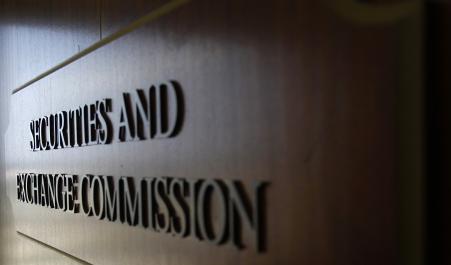By Cole Stangler -
More than four years after Congress passed sweeping financial reforms, a controversial section of the Dodd-Frank Act meant to shine light on the sensitive subject of executive pay remains off the books. And lawmakers are getting antsy about it. This week, 58 members of Congress signed a letter to the Securities and Exchange Commission (SEC), calling on the agency to finalize rules that would force publicly-traded companies to disclose executive-to-median worker compensation ratios.
“We believe it’s long past the time for the SEC to finalize its rule,” reads the letter, which includes the signature of Rep. Maxine Waters (D-Calif.), the ranking member on the financial services committee.
The SEC first proposed a rule on the topic in the fall of 2013. Since then, it has received thousands of comments from supporters and opponents alike, but has yet to finalize the measure. As a result, one of the most politically potent aspects of Dodd-Frank remains up in the air.
The pay divide between workers and executives has grown dramatically over the last several decades. In 1965, the compensation ratio was 20-to-1; it peaked at 384-to-1 in 2000 before dropping off to 296-to-1 in 2013, according to a report from the Economic Policy Institute, a pro-labor think tank. The average CEO at the nation's top 350 firms earned an annual $15.2 million in 2013, including stock options, bonuses and other forms of compensation. That compared to $52,100 for non-supervisory, private sector employees, according to the study. For critics of mounting income equality, that widening pay gap offers a compelling illustration of an economy they see as increasingly stacked against workers.
But proponents of the disclosure measure like Heather Slavkin Corzo, director of the AFL-CIO’s Investment Office, insist it would also communicates valuable information to investors. She pointed to studies that show companies with highly disproportionate executive compensation suffer from reduced performance.
Tom Quaadman, vice president of the Chamber of Commerce’s Center for Capital Markets Competitiveness, is not convinced. He called the proposed rule a “shaming" measure that doesn’t provide anything of use to investors, and decried the letter from Congress as a political stunt.
A spokeswoman for the U.S. Securities and Exchange Commission (SEC) declined to comment on the missive or the delay of the rule. She pointed to a February speech from Mary Jo White, in which the SEC chairwoman vowed to “press forward on our efforts to complete our mandatory rulemakings under the Dodd-Frank Act.” As of January, the agency still had to finalize more than a third of the law, according to the law firm DavisPolk, which has tracked the implementation of Dodd-Frank.
Proponents of the pay ratio rule suspect the delay stems largely from ongoing business opposition.
Sarah Anderson of the Institute for Policy Studies, a left-leaning think tank, says that corporations are worried about the public relations fallout that would follow the disclosure of embarrassing pay gaps. But that fear alone does not explain the outcry, she says.
“They know there’s interest in taking this and linking it to policies with more teeth,” Anderson says. “That’s why opposition from the business community has been so fierce.”
Last year, an unsuccessful bill in California sought to replace the state’s 8.84 percent tax rate on public companies with a sliding 7 to 13 percent scale that increased for employers with larger CEO-to-worker pay ratios. A bill introduced last month in Rhode Island, meanwhile, directs the state to “give preference in the awarding of state contracts” to companies whose highest-paid executives make no more than 25 times the median worker.
Quaadman acknowledges the political risks are real, but insists his group’s opposition is motivated more by the rule’s inutility and says the SEC should focus on finalizing other more pressing aspects of the law. He also says that compliance could be an “extremely costly and difficult process,” because many publicly-traded companies have subsidiaries and operate overseas, where they do business in fluctuating foreign currencies.
“If businesses are not willing to go public because of this, that’s going to have a significant impact on wealth creation,” Quaadman says.
